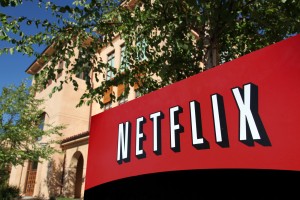
After more than 40 years of operation, DTVE is closing its doors and our website will no longer be updated daily. Thank you for all of your support.
Netflix drops ISP error warnings
 Netflix has said it will stop publishing error warnings in the US, blaming ISPs for poor playback, but at the same time criticised broadband providers for not providing enough capacity.
Netflix has said it will stop publishing error warnings in the US, blaming ISPs for poor playback, but at the same time criticised broadband providers for not providing enough capacity.
In a company blog post, Netflix communications executive Joris Evers said that as part of a “transparency campaign” Netflix started a “small scale test in early May that lets consumers know, while they’re watching Netflix, that their experience is degraded due to a lack of capacity into their broadband provider’s network.”
“We are testing this across the US wherever there is significant and persistent network congestion. This test is scheduled to end on June 16. We will evaluate rolling it out more broadly,” he said.
The news comes less than a week after Verizon has issued a cease and desist notice to Netflix demanding it stop publicly stating that issues with the Verizon network are responsible for slow connections affecting playback of series and movies.
In the letter Verizon said Netflix’s claims are ‘deceptive’ and could harm the wider perception of its broadband service.
However, in the blog post, published yesterday to coincide with its latest monthly ISP Speed Index report, Netflix reiterated its belief that ISPs’ actions are causing a “degraded Netflix experience.”
“Netflix does not purposely select congested routes. We pay some of the world’s largest transit networks to deliver Netflix video right to the front door of an ISP. Where the problem occurs is at that door – the interconnection point – when the broadband provider hasn’t provided enough capacity to accommodate the traffic their customer requested,” said Evers.
“Some large US ISPs are erecting toll booths, providing sufficient capacity for services requested by their subscribers to flow through only when those services pay the toll…We believe these ISP tolls are wrong because they raise costs, stifle innovation and harm consumers. ISPs should provide sufficient capacity into their network to provide consumers the broadband experience for which they pay.”
In recent months Netflix has signed interconnect deals with operators in a bid to improve streaming performance for its subs. It agreed a deal in February with Comcast, agreeing to pay the US cable giant to gain direct access to its network to deliver a better quality service to Comcast subscribers. It also agreed a deal with Verizon.


